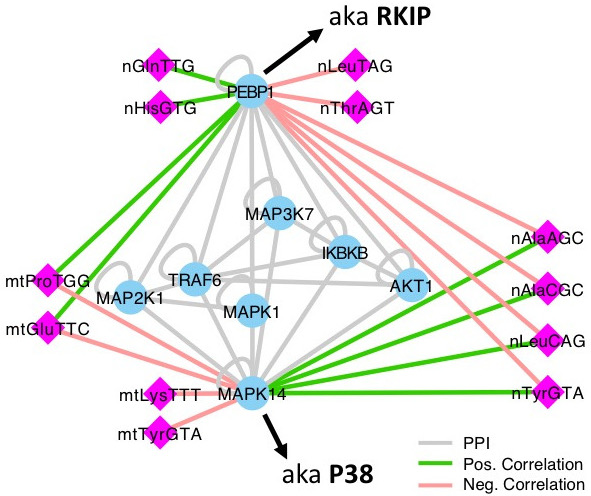Race disparities are prevalent in Triple Negative Breast Cancer (TNBC) with Black/African-American women presenting much more aggressive types of cancer. Although the socio-economic background plays a significant role in this health disparity, molecular differences in the biology of TNBC remain even after accounting for these factors.
Our recent study [1], integrating publicly available data form The Cancer Genome Atlas (TCGA) and multiple databases, uncovers key molecular differences in TNBC between the two race groups. Many biological pathways seem to be differentially wired, including immune system responses, MAPK and WNT signaling. Importantly, short non-coding RNAs seem to have a central role in regulating the expression patterns of these mRNAs. Therefore, microRNA (miRNA) isoforms (isomiRs) and tRNA-derived fragments (tRFs) not only emerge as important regulators in TNBC but also point to race-specific regulation programs.
 tRFs and mRNAs participating in MAPK signaling in white Triple Negative Breast Cancer patients
tRFs and mRNAs participating in MAPK signaling in white Triple Negative Breast Cancer patients
Our findings emphasize the need for more targeted and personalized therapies in TNBC and point to specific pathways (and their regulators) that precision medicine can consider.
References
- Telonis, AG, Rigoutsos, I. Race Disparities in the Contribution of miRNA Isoforms and tRNA-Derived Fragments to Triple-Negative Breast Cancer. Cancer Res. 2018;78 (5):1140-1154. doi: 10.1158/0008-5472.CAN-17-1947. PubMed PMID:29229607 PubMed Central PMC5935570.
